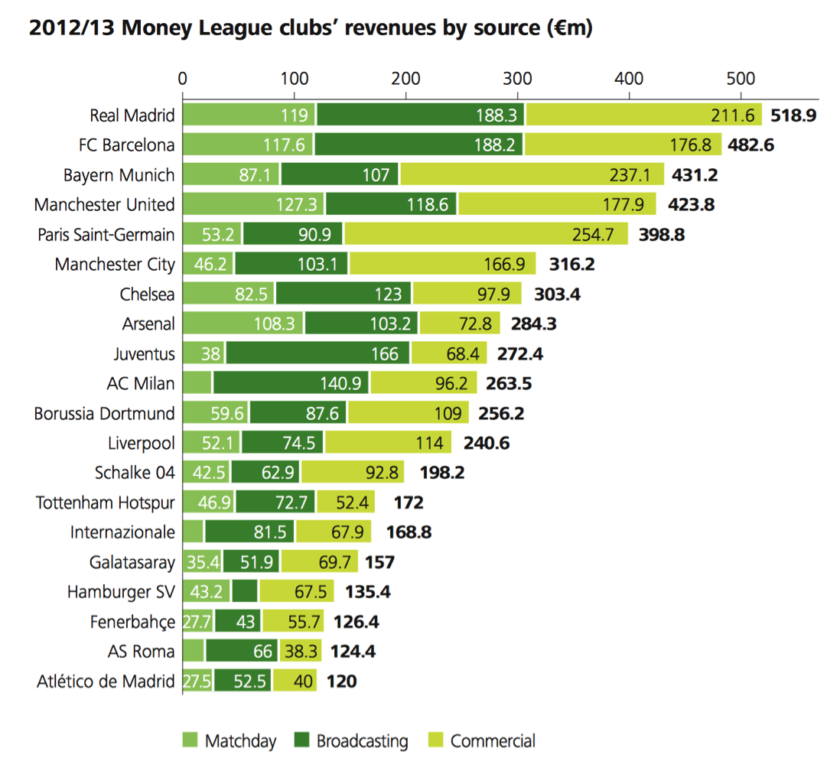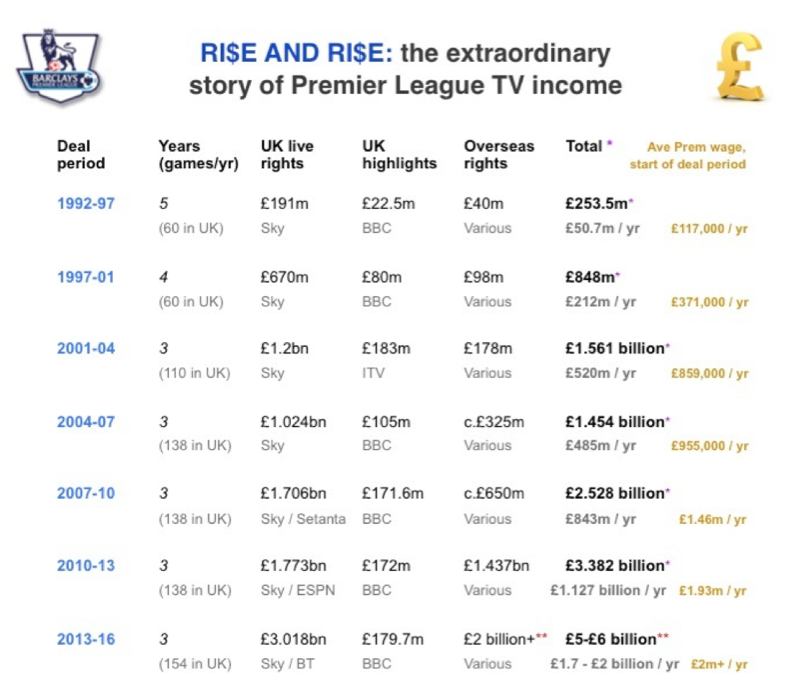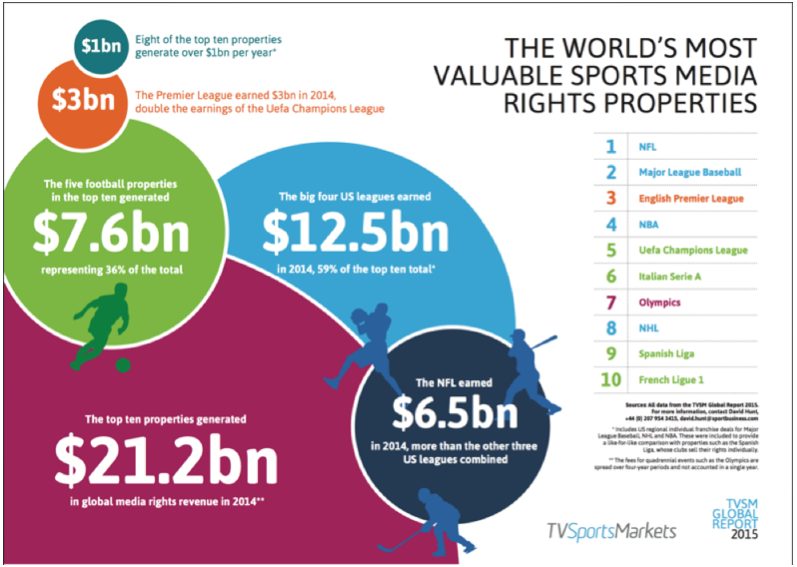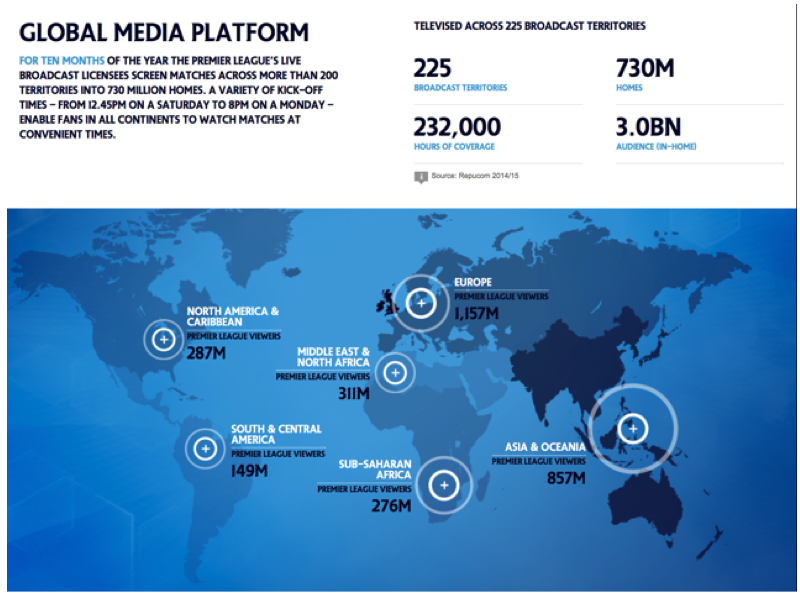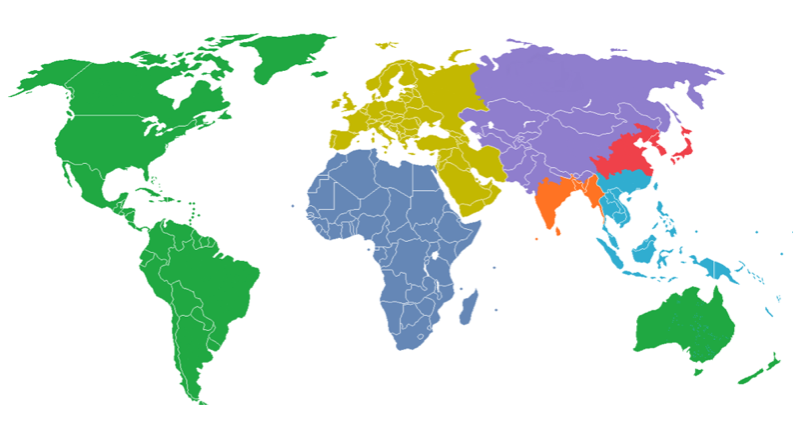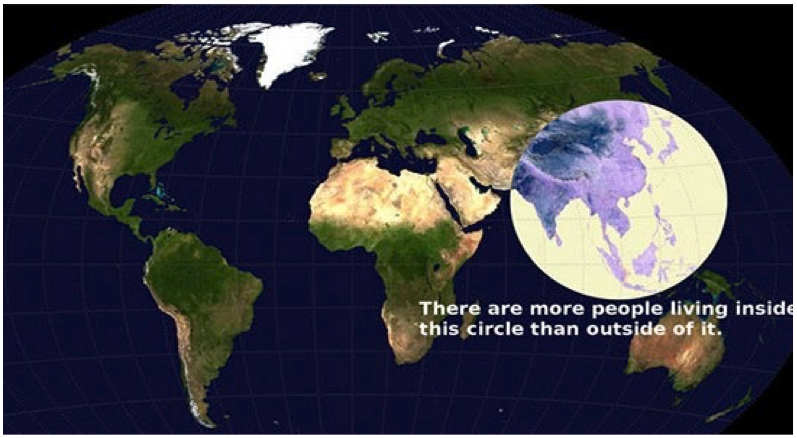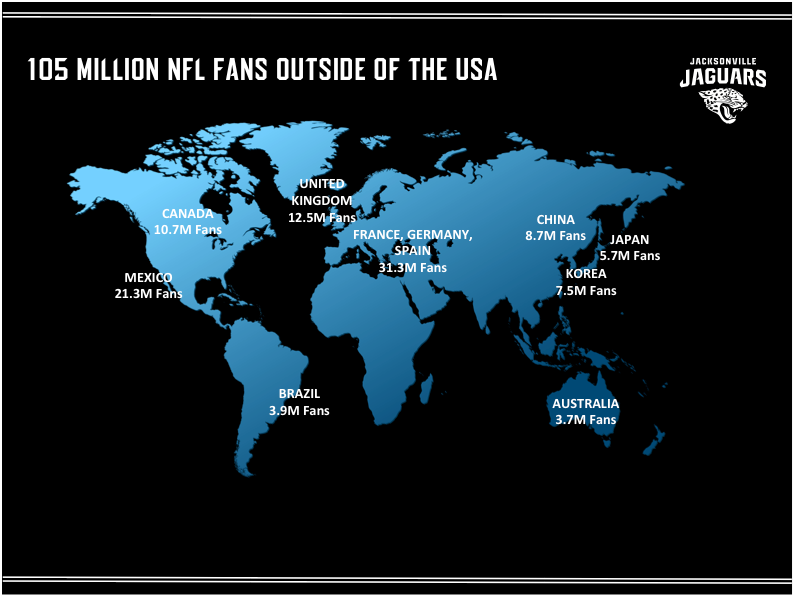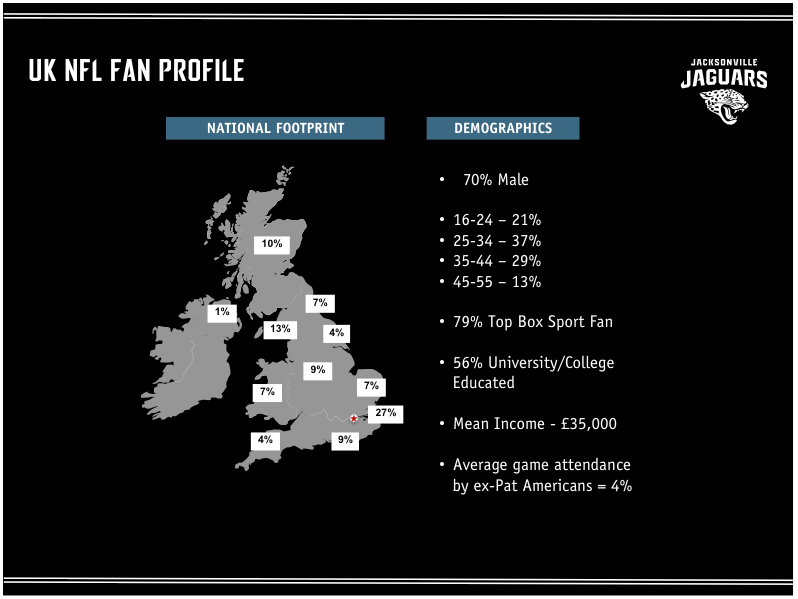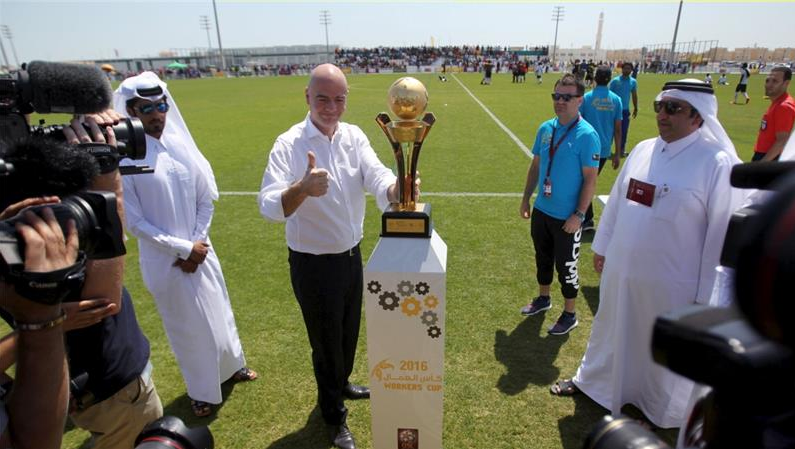
By TTT Subscriber Nabs Al-Busaidi.
This article was prompted by the recent article by Chris Rowland “Live TV – a Turn-Off For Match-Going Supporters?” on Feb 18th. The italic sub-headings are extracts from that article and the comments that followed it.
“…making life hell for those who attend”
I sympathise with supporters who travel to games, and have to contend with an inconvenient, changing schedule, due to TV broadcasters. As I live an 8 hour flight away from the UK, I only get to see 1-4 games a year at Anfield, so I have no idea the constant pain a season ticket holder suffers attending every game, especially away games. But when I do get to go to a match, the trip has to be planned months in advance, I have to take 3-5 days off work, get a visa, pay for flights, hotel rooms, trains and taxis, food and drink, and finally the match day ticket, which could be £44 or it could be up to £350 for a hospitality ticket (details of hosiptality packages at Liverpool FC here).
“…you pay them around 6 times the face value of the ticket and, aside from said ticket, they give you some prison food and a match day programme in return.”
(Incidentally, I am not against the hospitality ticket as it serves a very valuable, if expensive, service to people like me who wouldn’t be able to get a ticket any other way, and is more secure than trawling the black market… and the people who use this are quite often from abroad. I have met people from Australia, NZ, Canada, US, Bermuda, Nepal and loads from the Middle East.)
“…it can be an expensive day, and an expensive hobby”
…all of which means a match “day” experience costs me at least £1,000…but if the kick off gets changed, I have to change flights, visas, hotels, trains, request new days off…IF I can still fly over, and my reservations can be changed without a penalty…
“…does anyone know when the Southampton match in May will be confirmed?”
Currently I am hoping to attend the OLSC (Official Liverpool Supporters Club) Black Tie dinner, which is being organised the weekend of the Southampton game in May. But the dates still haven’t been confirmed, as the match hasn’t been fixed…so my flights haven’t been booked, I haven’t booked a hotel, I can’t apply for a visa yet, etc etc.
“…but (I) don’t understand why such short notice is given”
My hassles may not be as irritating, and certainly not as frequent, as the season ticket holders’ troubles, but it is still frustrating.
Having said that, I do get to see every Liverpool match live on TV. In fact, since I left the UK in 1998, I have seen almost every competitive Liverpool match live. I have watched games in over 30 countries, in six continents (in the Antarctic, I could only get LFC results by satellite phone, otherwise it would be seven continents) and this extensive viewing is due to international rebroadcasting distribution agreements, and increasingly these days, digital streaming.
So, in writing this reaction to “Live TV – a Turn-Off For Match-Going Supporters?” by Chris Rowland, I wanted to point out that there are two factors that were not really touched on in the article, and which will undoubtedly make things even worse for UK-based fans in the future… broadcasting revenue from international sales and international fans.
The Importance of Finance
Before we get into the details, I just want to re-emphasise the importance of revenue, and the nature of that revenue.
There has been a lot of analysis in recent years on what metrics are the most important in creating a winning team and successful club. Unfortunately for the idealists, the one factor that has the highest correlation with success is finance.
“…desire over money every time”
There are two factors that are the subject of great statistical debate. Wages and transfer spending are the two metrics that supposedly have the greatest correlation with success, but which is the greater indicator of success is up for debate.
“In the 1998-2007 period, spending on salaries by clubs in the Premier League…explained 89% of the variation in league position. It seems that high wages help a club much more than do spectacular transfers.”
Soccernomics, by Simon Kuper and Stefan Szymanski.
One of the problems with the work done in Soccernomics was that transfers were not readily comparable between years. For example, buying a player for £10 million in 2004 was a bigger “expenditure” than paying £20 million in 2014.
The work done in TPI adjusted transfer fees for “football inflation” so that all transfers could be converted to Current Transfer Purchase Price (CTPP)
Neither method is perfect but whether it is transfer wages or salaries, it seems that financial factors can explain most of the variation in league position.
(Now seems like an appropriate time to thank this forum and Paul Tomkins for helping teach me so much about all aspects of football, not just the game itself.)
Assuming the financial theories hold true, then it is just as important for LFC to maximise revenues off the pitch as it is for the team to get results on the pitch. The days of owners putting up their own money to buy the best talent are fast ending. Through FFPR, UEFA is forcing clubs to use their own revenue-raising abilities to invest in their squads. (Download UEFA’s FFP Rules here.)
“…Chris, where is the money in football? Does it come from the supporters? Does it come from the broadcast world? Does it come from elsewhere?”
Broadly speaking, clubs have three main revenue streams. As an example, I have attached a graphic from a Deloitte Football Money League report.
- i) Match day income (from tickets, corporate hospitality, dining etc)
Match day revenues are hard to increase significantly. You can sell more match-day programmes, or charge more for tickets, but the real improvement comes with increasing capacity or hospitality boxes, and that takes time and huge investment.
- ii) Broadcast income (EPL and Sky TV, UEFA Champions league etc)
EPL broadcast rights are currently negotiated collectively and shared fairly equally, so it is difficult to increase revenues as an individual club. The Champions League can double this income stream…but you are either in or out, and there is little commercial “control” over this.
iii) Commercial income (kit deals, sponsorship, merchandise, tours etc)
The final revenue stream is commercial income, and clubs have full control over this, and can increase it with comparatively little time or investment. Innovation in commercial operations is absolutely critical in the long-term sustainability of a club’s success. That is another discussion for another time, although having witnessed some of the changes first hand, FSG seem to be improving this significantly.
“It is predicted in North America that by 2018 that for all practical purposes the money flowing into North America sports will come from broadcasting and the money that comes in elsewhere will be pocket change.”
For most of the teams above, match day income is the smallest of the three revenue streams, and is the least likely to increase significantly. Whilst North American sports are a good indicator of how sports worldwide should proceed, in some respects it is not a good example, mainly because American sports is almost entirely a domestic market, whereas the EPL is consumed globally.
“Liverpool dangles in front of potential sponsors a survey from sports market consultants Repucom that puts its fan base at more than 580m.”
I believe that broadcast income and commercial income have a high degree of indirect correlation. The more fans there are, the more fans that watch the games. The more fans that watch the games, the more broadcast income, AND the more money from sponsorship deals.
I believe that broadcast and commercial income will be equally important in the future, but even if the North American example becomes true, either way, broadcast revenue will be very important.
The argument here focuses on the second revenue stream…broadcast rights.
The International Broadcasters
When Rupert Murdoch and Sky won the rights to screen live Premier League matches in 1992 for £304m, the tycoon described the deal as the “battering ram” which would enable pay-tv to establish itself in Britain. He was proved right, as the market in televised football exploded, and with it, satellite/cable TV. But he wasn’t inventing “fire” or the “wheel”. He was just following in the footsteps of a well-established business model already thriving in the USA.
But what was initially overlooked, and will eventually, at least in my opinion, cause the tail to wag the dog, especially with respect to scheduling, is the sale of international rights.
When the Premier League first started, in 1992, overseas rights were 15% of the total. It was an afterthought, and broadcast rights were almost given away. International broadcasters were paying on average, around £105 per match per country (assuming £40 million over five years, screening 380 games a season in 200 countries).
For the equivalent price of two match day tickets, you could broadcast a premier league game across a whole country, compared to the UK, where games were sold for the equivalent of £640,000 per match.
Since then, the sale of international rights has become a lot more competitive and a lot more expensive. Geographical limitations have been further sub-divided, and whilst they are still sold on a regional basis, advertising can be sold on a country basis, meaning the rights are worth more, which means the EPL can get more.
Virtual advertising is probably a new concept to most people who have never considered an international market. For example, when you watch an EPL game on SKY, the digital LED pitch side hoarding might be showing adverts for “Easyjet” flights from the UK to the EU. However, in Egypt, that same match will be showing adverts for Coca-Cola in Arabic. The international broadcaster can sell the LED pitch side space to another client local by digitally superimposing the creative, and they can do this on a country-by-country basis if they want to.
In the example below, you have different feeds for the Spanish market, Arabic market, UK market and Chinese markets.
If a broadcaster can screen an EPL match, and sell different advertising time/space to different clients in different countries, that multiplies the number of ways that the broadcaster can generate money. All of these factors make international media rights more and more expensive every round of bidding. In the 2012 round of bidding, overseas rights were nearly 40% of the total value. In fact international rights in 2013 (£2 billion) outstripped domestic rights in 2010 (£1.77 billion) and probably would have overtaken domestic rights in 2013 except for a few new factors.
“Then BT Sport muscled their way in, brandishing their wad.”
The value of domestic rights almost doubled in 2013-16 due to a new convoluted bidding process, an aggressive new entrant and more games being screened live in the UK. (All 380 games are screened live in the international markets).
The value of domestic rights is unlikely to increase significantly in the next round of bidding in 2018, even with the rivalry between BT Sports and Sky, unless…
- i) There is another new entrant…
OR
- ii) Even more games are screened…
- i) BeIN Sports from Qatar might bid for the UK domestic rights in the next round of bidding in 2018. BeIN Sports certainly has ambitions to be the next “ESPN” and has similar rights in other leagues outside of MENA, such as France, Spain, Belgium and the USA. BeIN sports have openly said they want to be bigger and better than SKY Sports, and that could mean an attempt to wrest the UK TV rights for the EPL away from SKY. And if they do, then there will be another jump in the value of domestic rights. It will also mean you will get to see Richard Keys and Andy Gray again!
- ii) There are 380 games a season, and currently only 40% are being shown live in the UK. Outside the UK, every EPL game is shown live. I have no doubt that eventually, and that could be two or maybe 20 years away, the EPL will allow all 380 games to be broadcast live in the UK.
“…staggered like the heats of a final – the 12.00, 12.30, 1.30, 3.00, 3.30, 4.00, 4.30, 5.30 ….”
If more games are shown, the EPL will get paid more. And to make sure that all games get sufficient viewers, every week, all kick offs will be staggered so they don’t overlap. So expect Friday night games, Sat early, 3pm, late, Sun early, 2pm, 4pm, late and Monday night games when they finally start showing more games…
However, the overall point of this section is that the UK market is reaching/has reached saturation in terms of viewers, and the market size for pay TV is probably eventually going to contract, as the US market has started to do. Essentially, there are only so many people that want to watch football, and even if everyone had a subscription, that will cap at 60 million, a theoretically massive number, but dwarfed by the current and potential international market of billions.
And, overseas rights are expected to continue to grow rapidly, especially in the Middle East, US and parts of Asia.
To understand the scale of untapped potential, if we look at the world’s most valuable sports media rights properties, the EPL is third, behind the NFL and MLB.
The NFL showpiece, Superbowl LI (51), was watched by an estimated 112 million, and yet if we look at the EPL figures below, the EPL has around one BILLION regular viewers every week, globally. And that is the key, GLOBAL figures.
“I think the US markets have matured, as there does not seem much interest outside of the states. On the other hand, the EPL is still growing, and still has a huge potential growth abroad…”
“Red Monday”, the over-hyped Liverpool v Man Utd game in October 2016, had the highest UK viewing figures peaking at around three million. But that is nothing compared to the pre-game global estimate of viewers for that game, which was in the region of 700 million! The actual figure was probably around 400 million because of the late kick off, which meant the Far East was fast asleep by kick off (and definitely fast asleep by half time if they were still watching)
And kick off time is going to be increasingly important…because a new EPL viewership record was made during the Manchester derby, not because of the Citeh worldwide fan base, but because of the early kick off.
These millions of viewers should demonstrate that the value of EPL media rights has the potential to eventually be worth several times as much as it is now. The EPL should be earning more than the NFL, NBA, NHL and MLB put together…there is still a lot of unrealised potential revenue in the EPL…and that potential resides internationally, not in the UK.
The largest revenue growth potential for EPL broadcast rights is the international rights, and of those territories, the area with largest growth potential is Asia…except the kick-off times do not make live games very convenient to watch live.
Which leads me onto the subject of fans…
Population Distributions
The map below gives a rough guide to where people live on earth. Each colour represents roughly 1 billion people.
Green North, Central, South America, Australia and New Zealand
Yellow Europe and the Middle East
Orange India, Bangladesh and Burma
Purple Asia (East of the Urals, the “stans” et al – Pakistan, Kazakhstan, Uzbekistan, Kyrgyzstan, Turkmenistan, Tajikistan, Afghanistan)
Red China and Japan
Blue South East Asia
Grey Africa
Basically, there are a billion people living in a similar time zone as the UK, (Western Europe, Western and Central Africa, in yellow and grey) but there are five billion people who live in time zones where EPL games kick-off at awkward times. It is not unusual for games to end at 2 am when I watch LFC, and I only live in time zone GMT+4. Imagine what it is like in China, or India or South America…
But not all footballing regions are equal in potential…
Mature, Developing and Emerging
One way of splitting the globe into homogenous footballing regions is the Octagon model, where: –
“Mature” markets are those areas with football as the number one sport and a long history of professional and international competition. Of more relevance, these are regions where the club teams have already been chosen, and whilst a Barcelona fan in Spain may have a favourite EPL team, the English team will generally come a distant second to Barcelona. These regions are unlikely to take to watching the EPL in large numbers.
“Developing” markets are areas ready to embrace the LFC/EPL brand and covers 3.5 billion people. These 3.5 billion are spread right across Africa through the Middle East to South East Asia, with a bipolar population density firmly concentrated on Southern China, and loosely over MENA / Africa.
These are regions where fans love the game, but as there are no major regional teams, they are likely to choose a foreign club as their first love. The flip side to this advantage is that there is also a greater likelihood of switching teams, as the bonds are generally looser.
E.g. in the Gulf Cooperation Council, during the ’80s, Liverpool and Man United were the most popular teams, during the ’90s, Juve, AC and Inter were the most popular teams, and for the last 10 years it has been Real Madrid and Barcelona.
“Emerging” markets are regions where football is not the number 1 sport, but still encompasses 1.5 billion people. This is mainly North America, the Indian sub-continent, and Australia/New Zealand.
As mentioned before, the biggest long-term growth potential is with the four billion football fans in the East, covering the Orange, Purple, Red and Blue areas. Looking at the Octagon map above, it becomes more obvious why most of the growth potential is to the East of the UK.
“When will the powers that be in English football realise that the potential riches of broadcasting matches to maximise viewership in the wider world means that it makes sense to move matches around in England? If one just crunches the numbers, the potential viewership and revenues from broadcasting to say China outweighs any possible income that can be derived from supporters.”
The Spanish league is acutely aware of this idea, and with China making football a national project, there is a lot of money to be made in the Far East. La Liga has already switched kick off times to earlier slots to suit the Chinese market, as well as opening offices in Beijing and Shanghai. They have also switched kick off times to suit the viewers in India.
“it doesn’t impact on their lives of the broadcasters’ intended audience that much – wherever in the world they happen to be.”
Most viewers of the EPL live to the east of the UK, and these millions of fans don’t care if the times are different, but they do want earlier kick offs. However, I wouldn’t say they are the intended audience as of now, but there will be a time, probably with the 2018 round of bidding when they will become an audience that needs to be considered. And when that day comes, there will be a lot more early kick offs.
“The very well paid piper is indeed calling the tune, and doesn’t particularly care whether the match-going fan has his or her hands over their ears.”
The EPL also needs to secure its place in the world. British football has had a head start over every football league in the world because of the Empire and Commonwealth. The French league is only broadcast live in around 50 countries, mainly ex colonies. The Bundesliga is shown live in even fewer countries than the French league.
La Liga watched the EPL and the vast TV money, and knew it couldn’t compete under those circumstances. And so it has undergone a rapid transformation. In the past, TV rights were sold individually by the clubs which meant that Real Madrid could earn €140 million a year, which was comparable to the top clubs in the EPL, but the bottom club, Almeria only got €18 million, compared to the EPL where the bottom relegated team gets almost €100 more than the bottom La Liga team.
“the TV viewer’s needs (are) pandered to whilst the match going ones’ are ignored seems wrong to me, even if the maths are that a higher percentage of the clubs’ income is coming from the TV viewing fans, indirectly, than through the turnstile payers directly.”
The Spanish have now switched to a collective bargaining model, similar to the EPL, which means that La Liga is now able to make a lot more from selling rights abroad. But they will always be playing catch up if they follow in the footsteps of the EPL…so to get ahead, they are opening offices in the United States, the United Arab Emirates, South Africa, India, Nigeria and China in the hope of expanding internationally.
Scheduling games earlier in the day so that more viewers in the East are able to watch the game live is another way La Liga is playing catch up with the EPL. If China, as an Octagon “developing market” decides to switch their attention to La Liga, the next EPL broadcast deal will not increase at the same rate, and that worries the EPL.
For the EPL to keep ahead of the competition, you will hear revivals of ideas like the “39th game”, playing the Charity Shield in the Far East, (akin to the Italian SuperCoppa) or even playing regular season games abroad (akin to the Jacksonville Jaguars playing NFL games in London).
Jacksonville Jaguars – a case study and a sign of things to come?
The Jags are an NFL expansion team, with the 2nd smallest NFL market (US market size is measured in a 70 mile radius from the home stadium), and 47th largest DMA (Designated Marketing Area) in the USA. The military employs around 50% of the population in Jacksonville, with the Navy the main employer, but there are also army, reserve, air national guard and marine bases. US military assignments are on average about two years, so the Jacksonville population is transient with many residents not even originally from Florida.
This means the Jags are not even the first choice NFL team for many Jax residents.
In 2012, to help boost the franchise, the NFL agreed to allow the Jags to play one international game a season in London. The NFL originally had one international game a year, and this has since been increased to three a season, with suggestions that a team move to London permanently.
The relocation of the Jags to London is a possibility although Shahid Khan, the owner gave a verbal undertaking not to relocate the franchise when he initially bought the Jags. But he also owns Fulham FC, so the idea has some attractions, not least because of the NFL data below.
20% of NFL revenue comes from ticket sales, but EverBank Field has the 6th lowest seat factor in the NFL at 89% capacity, and is one of the smaller stadiums. The Jags can’t increase ticket prices to increase revenue, but as the only NFL team with local rights to the UK, the Jags now have potentially the largest market.
There are 65 million people in the UK and 15 million within the 20 mile radius of the M25. There are around 3.4 million NFL fans in London, the greatest concentration of NFL fans in the UK, all living within 20 miles of Wembley. Since 2012, the Jags have gone from being the 31st most popular team in the UK (out of 32) to being the 9th most popular. Wembley is regularly sold out, which puts the Jags, and the NFL, in pole position to significantly expand their international fan base.
The NFL is the gold standard for commercialisation of sports, so if it is possible for an NFL team to play its home games abroad, then it is very conceivable that one of the teams in the EPL, probably a team that has the smallest stadium, decides to play their home games elsewhere…quite possibly China.
Of course, there will be a lot of resistance to the idea, and lots of issues to iron out, and it will not happen any time soon, but the situation is already a reality in the NFL…and could be for the EPL in the future.
The 12th Man
The first time I watched Liverpool at Anfield was a transformative experience. I had seen Liverpool play many times on TV, and several times at away games in London, but my first time at Anfield changed everything about how I experience a match.
“… [fans] fill the stadia, make the noise and atmosphere, without which the occasion is robbed of a crucial part of its theatre.”
It is hard to explain to friends and family why I go to so many live games, and the most simple way I can explain the difference is that on TV you can see the game, and you can hear the game (and a lot better than in the stadium), but in the stadium you can “feel” the game (read about my experiences here).
And that makes all the difference. The emotion, the tension, the stress…it’s why the second best “atmosphere” to a stadium is to sit in a bar with loads of other fans, and collectively support LFC. The shared emotion changes the game experience.
“Would the Dortmund spectacle, or Chelsea 2005, have been the same without the crowd?”
Standing on the Kop for the first time, I was nervous! Surrounded by hundreds of people, swaying and jostling me without any control. And when the standing Kop was in full voice, the old concrete stand began to vibrate, and at certain points during YWNA, my ribcage began resonating with the song, knocking the air out of my lungs…it was a new and scary experience.
And I LOVED it!
“All wedding photographers and no wedding party.”
More recently, I have been to Anfield several times over the last 5 years, and not once has the atmosphere come close. Even during the pre match singing of YNWA, half the fans around me are taking videos with their phones, don’t know the words or just not singing.
“At this rate, the TV people might as well develop plans to superimpose virtual fans onto their broadcasts to have some semblance of atmosphere to compensate for the increasing number of fans staying away. Perhaps the VR people can let us watch ‘live’ from our sitting room. In fact, they can capture our shouting and stream the noise, singing, cursing etc back into the stadium. At least the players could still hear our passion even if they couldn’t quite see us. That will be the day.”
That was actually a part of the Japan 2022 bid book to host the FIFA World Cup. It went even further…
Let’s say England was playing Germany in Tokyo. Tickets to the game would be sold in Tokyo, Wembley and Berlin. The game would be displayed/screened with holograms on the pitch at Wembley, as if you were watching the game live in Tokyo, whilst the cheering and shouting would be fed back into the stadium in Tokyo through hundreds of tiny speakers buried throughout the pitch.
The idea was to install the technology in all countries that were competing in the 2022 finals, so that even more fans could be a part of the tournament.
Japan (and S. Korea) did not get past the first round of voting basically because they had hosted the 2002 FIFA World Cup, but another criticism of the Japan bid, was that the technology was unlikely to be ready in time…but it is only a matter of time until it is ready…
Fan Action
“Enough people need to cut the cord with Sky and BT so that they get the message.”
I noted that there was a lot of support for the conventional wisdom that if fans stopped buying SKY packages, and/or stayed away from the stadiums, then the broadcasters would have to pay attention to the match-going fans.
However, I think that this will unintentionally have the opposite effect. The less power that SKY/BT have over the schedules, the more influence the International/Asian broadcasters will have, and that will mean more early kick offs. Even the 17.30 kick off is quite late for many viewers in SE Asia. And this action is probably too late to have a significant impact, unless you can convince over 25% to drop SKY before the next round of bidding for media rights.
“…away tickets could go to other LFC fans around the country”
As most of you know, the waiting list for season tickets is endless, and every seat at Anfield could be sold several times. Plus there are so many Liverpool fans spread around the UK that LFC could sell those away tickets to OLSC’s that are near the away stadium and sell them all to fans who would not have travel or accommodation issues.
“…the sight of rows of empty seats”
The argument is that if the broadcasters keep upsetting the match-going fan, eventually they will stop attending matches.
“Even if we were to drop out, odds are we’d be replaced by others off the waiting lists.”
The walkout during the Sunderland game made a big splash in the UK, but it was of little interest to international broadcasters. Live feed directors are not going to cut away from a game screening in Asia to show a few empty seats. A hot female fan, almost definitely. Empty seats? Unlikely. And as long as international rights go up, and abroad, the markets are going through a growth similar to the growth Sky experienced in the 1990s.
Other Potential Factors
Individual Sale of International Rights
So far, all cash from overseas TV rights sales has been split evenly among the clubs: that was worth £18,764,644 per club in 2011-12.
But in the future, what if overseas rights were split according to how many times a club was shown on TV (facility fee) or if these could be negotiated individually?
If international rights are based on how often a team is shown, or if there is an individual deal, then all clubs will want to change their games to be screened. And that will surely mean more early kick-offs.
Threats to Broadcasting
“…the world of broadcasting is changing”
As someone who thought the World Wide Web was just a fad, I can’t even begin to guess how the industry will evolve, but there are several obvious threats.
Already in the Far East, match highlights are consumed voraciously partly because the games are played in the middle of the night and partly because Millennials don’t have the patience to sit through 90 minutes, and prefer to watch 10-15 minutes of highlights.
Digital platforms are changing how sports are consumed, but the games will still have cameras in the stadium filming, and then it will still need to be broadcast. The main difference will be how many people watch on TV versus on their mobile, iPad etc. I am no techie, so I give no prediction on this.
“…not sure if relevant but, pretty much all of my football supporting friends have binned Sky in favour of an Android box”
However, more importantly, broadcasts result in pirated streams and extra-territorial reception. After Richard Keys boasted on Twitter that he was watching BeIN Sports in the UK, the EPL decided to block some rights holders (including BeIN where Richard Keys works) from broadcasting many of the 3pm games, until they were secure from piracy. In this case, piracy includes reception outside the geographical limitations of the Middle East.
More difficult to eliminate is streaming of games from the Internet, something that many people in Asia do. If this is not effectively curbed, then the value of media rights will go down. Why pay for something when you can get it for free? I have to admit I have done this numerous times when I have not been able to find a bar showing the game…(Arctic circle, Hammersmith for a 3pm kick off, Everest base camp, Dubai during Ramadan etc)
Conclusion
So, in summary…
Unusual fixture times are difficult for the fan who goes to Anfield, and especially those who follow the club to away games around the country.
These unusual fixtures times are caused by TV scheduling.
TV pays big money, so they dictate the times.
There are 100 times more EPL fans living outside of the UK than there are in the UK.
International broadcast rights are soon going to dwarf domestic rights.
Current EPL kick-off times are difficult for the potential four billion viewers in the East.
Early kick-offs get more global viewers
Eventually, more games will have early kick-offs and times suited to an international audience.
I know that a match without the atmosphere of committed fans is less than half the experience, but in the end, this discussion is about how much sway the match-going supporters will have, as opposed to the armchair variety, and whatever our feelings or beliefs, we should be worried what broadcasters have done and could yet do to our game.
 Note from Editor: Nabs has asked us if he could dedicate this article to the memory of PC Keith Palmer, who was killed in the terrorist attack on Westminster last week. In 1995 Keith (pictured top central) was a newly promoted bombardier, at which point Nabs (pictured directly below him) was appointed his troop commander. We are more than happy to oblige with his request.
Note from Editor: Nabs has asked us if he could dedicate this article to the memory of PC Keith Palmer, who was killed in the terrorist attack on Westminster last week. In 1995 Keith (pictured top central) was a newly promoted bombardier, at which point Nabs (pictured directly below him) was appointed his troop commander. We are more than happy to oblige with his request.
